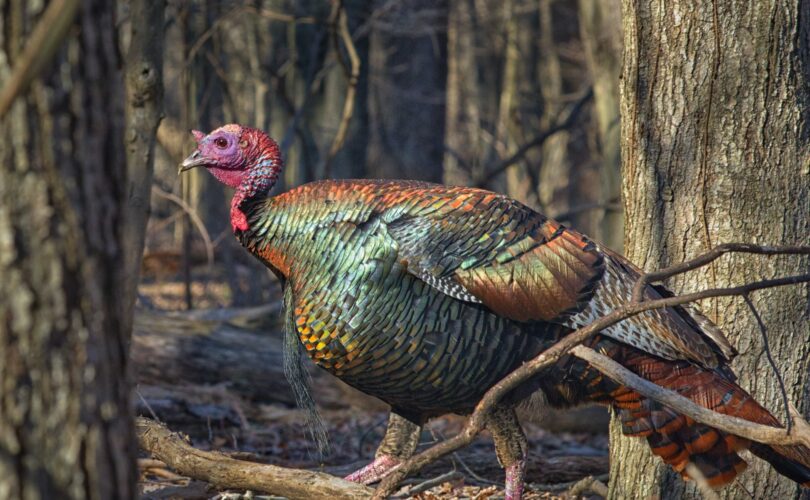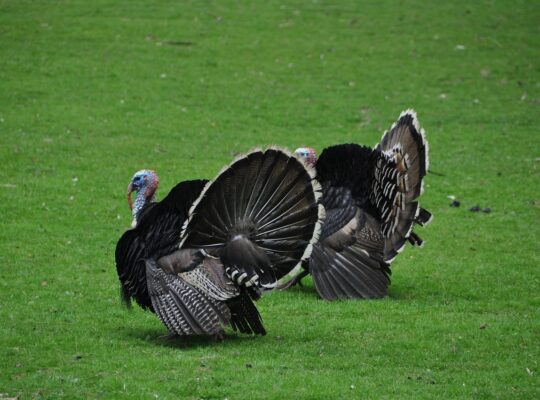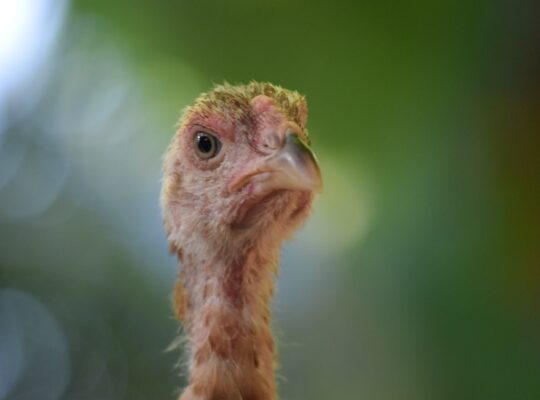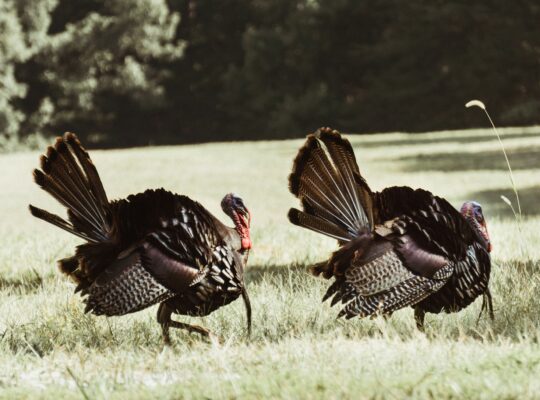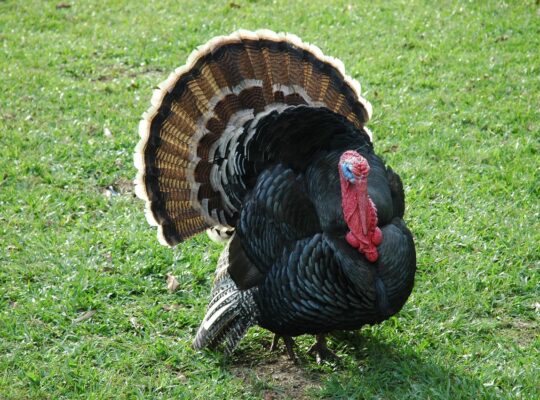Wild turkeys are omnivorous birds that eat a diverse range of foods. Their diet may change throughout the winter depending on the availability of food sources in their habitat. To satisfy their nutritional demands during the winter, wild turkeys often ingest a combination of plant and animal stuff.
Seeds are an important winter food source for wild turkeys. They may consume grass, wildflower, and other plant seeds. Turkeys will also scavenge for acorns, an essential food source in autumn and winter. These nuts are heavy in fat and calories, which assists turkeys in storing fat reserves for the winter months.
Wild turkeys may ingest insects and other tiny animals and plant material. They may scrape through leaf litter in search of beetles, ants, and other invertebrates to consume. Turkeys may feed on aquatic creatures such as crayfish in regions where there are water sources.
Wild turkeys may have difficulty obtaining sufficient food to sustain their lives throughout the winter months. The accumulation of snow and ice may make it more difficult for them to get the food sources of their choice, and some plants may be inaccessible for winter. On the other hand, turkeys are adaptable and resourceful birds that can often find enough food to live even in severe settings. They can do this because they can survive in a variety of environments.
In areas where wild turkeys are hunted, the amount of hunting pressure may also impact the availability of food sources. The remaining turkeys may have access to more food due to hunting. This might lead to larger flocks, which would then increase the amount of competition for food.
In their search for food throughout the winter, wild turkeys may come upon various resources, including seeds, nuts, insects, and even small animals. They can survive even in difficult environments by adopting scratching and foraging behaviours to sustain them.
Do Wild Turkeys Eat Ticks?
Yes. wild turkeys eat ticks. This can help decrease tick infestations in their natural environment. Although turkeys may consume ticks, they are not a significant food source, and their influence on tick populations may be limited.
Ticks are blood-sucking parasites that may spread illnesses to animals and people; thus, keeping their numbers under control is critical for public health. According to one research, wild turkeys may swallow significant amounts of ticks, with one bird consuming up to 200 ticks in a single day. This shows that turkeys may aid in managing tick infestations in locations where they exist.
Turkeys may be most successful in tick control in the spring and summer when ticks are most active, and turkey numbers are at their peak. It is crucial to note that turkeys’ influence on tick populations may be reduced in places where turkeys are few or are hunted or otherwise managed.
Although wild turkeys are known to eat ticks and may contribute to the reduction of tick populations, it is important to note that they are not the primary method of tick control and should not be relied on as the sole method of tick management. Other methods, such as the use of pesticides, the management of habitats, and tick inspections, may be necessary to effectively reduce tick populations and reduce the risk of diseases that are transmitted by ticks.
What Is The Best Feed For Wild Turkeys
Wild turkeys are omnivorous birds that eat largely natural things such as seeds, nuts, fruits, insects, and small mammals. They also eat plants and grains. However, their diet is heavily influenced by the availability of food sources in their environment.
Supplementing wild turkey feed may be advantageous, particularly during hard winters when food is limited. The best meal for wild turkeys should be a balanced blend of protein, carbs, and necessary elements that mimics their natural diet.
One approach is offering a variety of seeds, grains, and dried fruits, such as cracked corn, wheat, sunflower seeds, and raisins. This may be placed in a specific feeding location or distributed across the ecosystem to stimulate foraging activity.
The provision of commercial wild turkey feed specifically formulated to meet the nutritional needs of wild turkeys is yet another method that might be used. These feeds often have a high protein concentration and are produced using a variety of grains, seeds, and other naturally occurring components.
It is worth noting that supplemental feeding should not interfere with or take the place of the natural foraging behaviour of wild turkeys. It should be administered in moderation and only as an addition to their normal diet rather than as a replacement for it.
Additionally, it is essential to ensure that the feeding area is always spotless and free of any mould or bacteria that can harm the turkeys. Fresh water should also be provided to increase hydration levels.
The best feed for wild turkeys should be a well-balanced mixture of natural nutrients that closely resembles their natural diet and encourages their overall health and well-being. This is the case for all types of wild turkeys.
Should You Feed Wild Turkeys?
Feeding wild turkeys is not suggested since it may harm both the turkeys and people. Giving wild turkeys food may encourage them to get used to people, making them less fearful and hostile. Supplemental feeding may also affect the birds’ normal behaviour, resulting in overcrowding and related issues such as greater competition for food and habitat, as well as an increased risk of disease transmission.
Feeding wild turkeys may also draw them into residential areas, causing property damage and safety problems. It’s advisable to keep a safe distance from wild turkeys and appreciate their natural activities in their natural environment.

